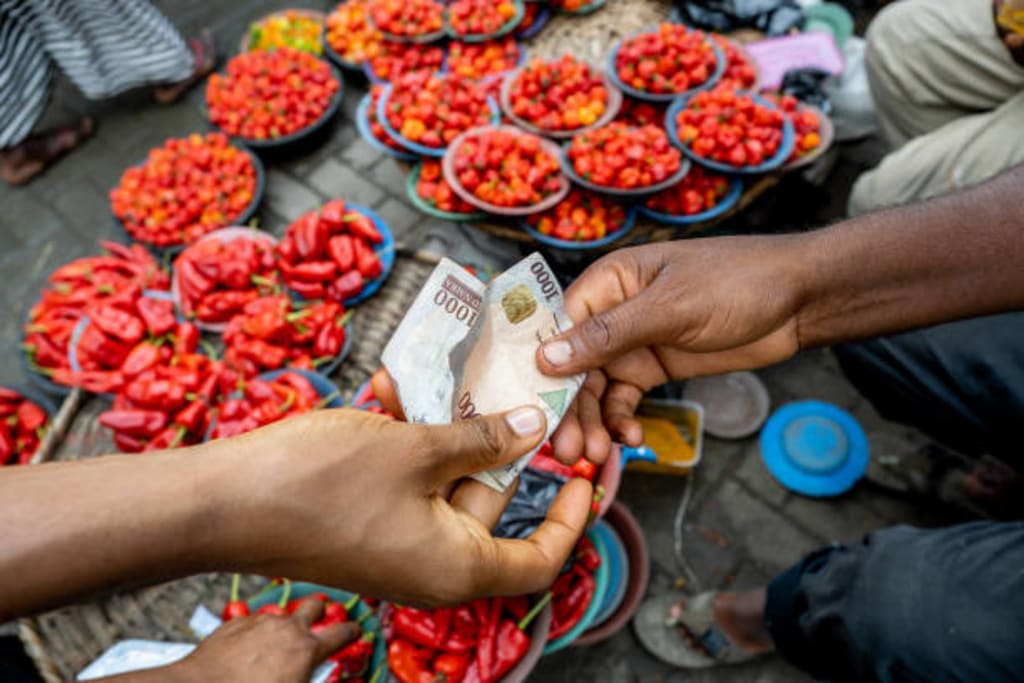Consumer Behavior in Response to Rising Food Prices in Nigeria
Changes in purchasing patterns due to inflation. Preference shifts towards certain types of food items.

Consumer Behavior in Response to Rising Food Prices in Nigeria
As food prices in Nigeria continue to soar, consumer behavior is evolving in fascinating ways. Rising costs for staples like rice, bread, and vegetables are pushing Nigerian households to adapt their purchasing patterns, making strategic choices to navigate this economic landscape. This adaptive behavior not only highlights the resilience and ingenuity of Nigerians but also provides a window into broader socio-economic trends that can inspire innovative solutions to food security challenges.
Shift Towards Local and Seasonal Produce
One significant change in consumer behavior is the increased preference for locally grown and seasonal produce. With the prices of imported foods rising due to exchange rate fluctuations and global supply chain disruptions, many Nigerians are turning to local markets for their food needs. This shift is not only a cost-saving measure but also supports local farmers and reduces the carbon footprint associated with food transportation.
For instance, the popularity of foods like yams, plantains, and cassava has surged. These crops are not only staples in the Nigerian diet but are also more affordable compared to imported alternatives. By choosing local and seasonal produce, consumers are making economically and environmentally sound decisions, fostering a more sustainable food system.
Home Gardening and Urban Farming
The trend towards home gardening and urban farming is another intriguing response to rising food prices. As food costs climb, many Nigerians are finding innovative ways to supplement their food supply. Urban farming initiatives are sprouting across cities, with residents growing vegetables, herbs, and fruits in their backyards, balconies, and even on rooftops.
An inspiring example is the Lagos Urban Farming Initiative, which encourages city dwellers to grow their own food using small spaces and modern farming techniques. This initiative not only helps reduce food expenses but also promotes healthier eating habits and community engagement. By cultivating their own food, Nigerians are gaining greater control over their food sources and contributing to urban food security.
Bulk Buying and Cooperative Purchasing
In response to rising food prices, consumers are increasingly turning to bulk buying and cooperative purchasing. By purchasing food in larger quantities, families can take advantage of discounts and lower per-unit costs. Moreover, forming cooperatives allows groups of people to pool their resources and buy directly from wholesalers or farmers, bypassing intermediaries and reducing costs.
For example, in many Nigerian communities, women’s cooperatives have become a powerful force in food procurement. These groups collectively buy food items like grains, beans, and cooking oil in bulk, then distribute them among members at reduced prices. This collaborative approach not only makes food more affordable but also fosters a sense of solidarity and mutual support.
Embracing Technology and Online Platforms
Technology is playing a crucial role in how Nigerians are adapting to rising food prices. Online platforms and mobile apps are connecting consumers directly with farmers and local markets, offering competitive prices and home delivery services. These digital solutions are making it easier for consumers to find the best deals and access fresh produce without the need to travel to crowded markets.
For instance, platforms like FarmCrowdy and Foodlocker are revolutionizing the way Nigerians buy food. FarmCrowdy connects consumers with smallholder farmers, allowing them to purchase fresh produce directly. Foodlocker, on the other hand, offers an online marketplace where consumers can order a variety of food items and have them delivered to their doorstep. These platforms not only help consumers save money but also support local agriculture and ensure a steady demand for farmers’ produce.
Dietary Adjustments and Innovation in Cooking
Nigerians are also adjusting their diets and getting creative in the kitchen to cope with rising food prices. Traditional recipes are being modified to incorporate more affordable ingredients, and new dishes are being invented to make the most of available resources. This culinary ingenuity is not only a practical response to economic pressures but also a celebration of Nigeria's rich food culture and creativity.
For example, many households are now making more use of ingredients like beans, which are nutritious and relatively inexpensive. Bean-based dishes such as akara (bean cakes) and moi-moi (steamed bean pudding) are becoming more prevalent. Additionally, innovations like “potluck” dinners, where families or friends each bring a dish to share, are gaining popularity as a way to enjoy a variety of foods while spreading the cost.
The Power of Community and Knowledge Sharing
The rising food prices have also fostered a sense of community and knowledge sharing among Nigerians. Social media platforms and community forums are buzzing with tips on budgeting, recipes, and urban farming techniques. People are sharing their experiences and solutions, creating a collective resilience that is both inspiring and effective.
In conclusion, the rise in food prices in Nigeria has prompted a dynamic and resourceful response from consumers. By shifting towards local produce, embracing urban farming, engaging in cooperative purchasing, leveraging technology, and innovating in their cooking, Nigerians are demonstrating remarkable adaptability. These changes not only help households manage their food expenses but also contribute to a more sustainable and resilient food system. The ingenuity and solidarity displayed in these responses offer a blueprint for overcoming economic challenges and ensuring food security for all.
About the Creator
oludotun oyedele
I have being a writer for the past twenty years both poems and intriguing novels though most of my work lack finance but i do it for some local schools has gift so that they can learn. Please support my work to grow.
Enjoyed the story? Support the Creator.
Subscribe for free to receive all their stories in your feed. You could also pledge your support or give them a one-off tip, letting them know you appreciate their work.





Comments
There are no comments for this story
Be the first to respond and start the conversation.